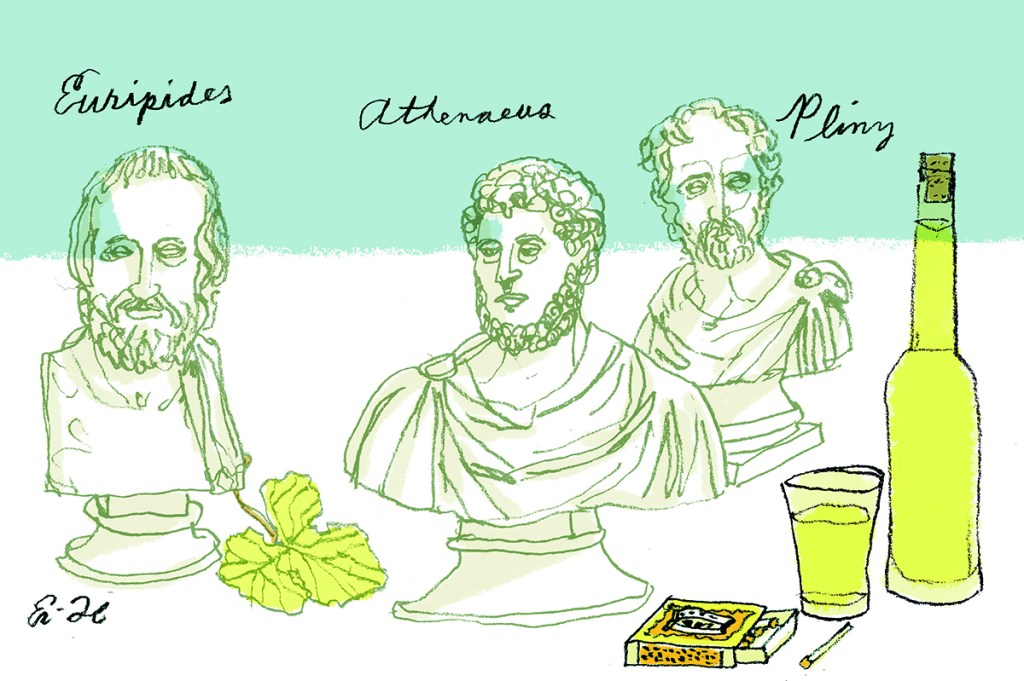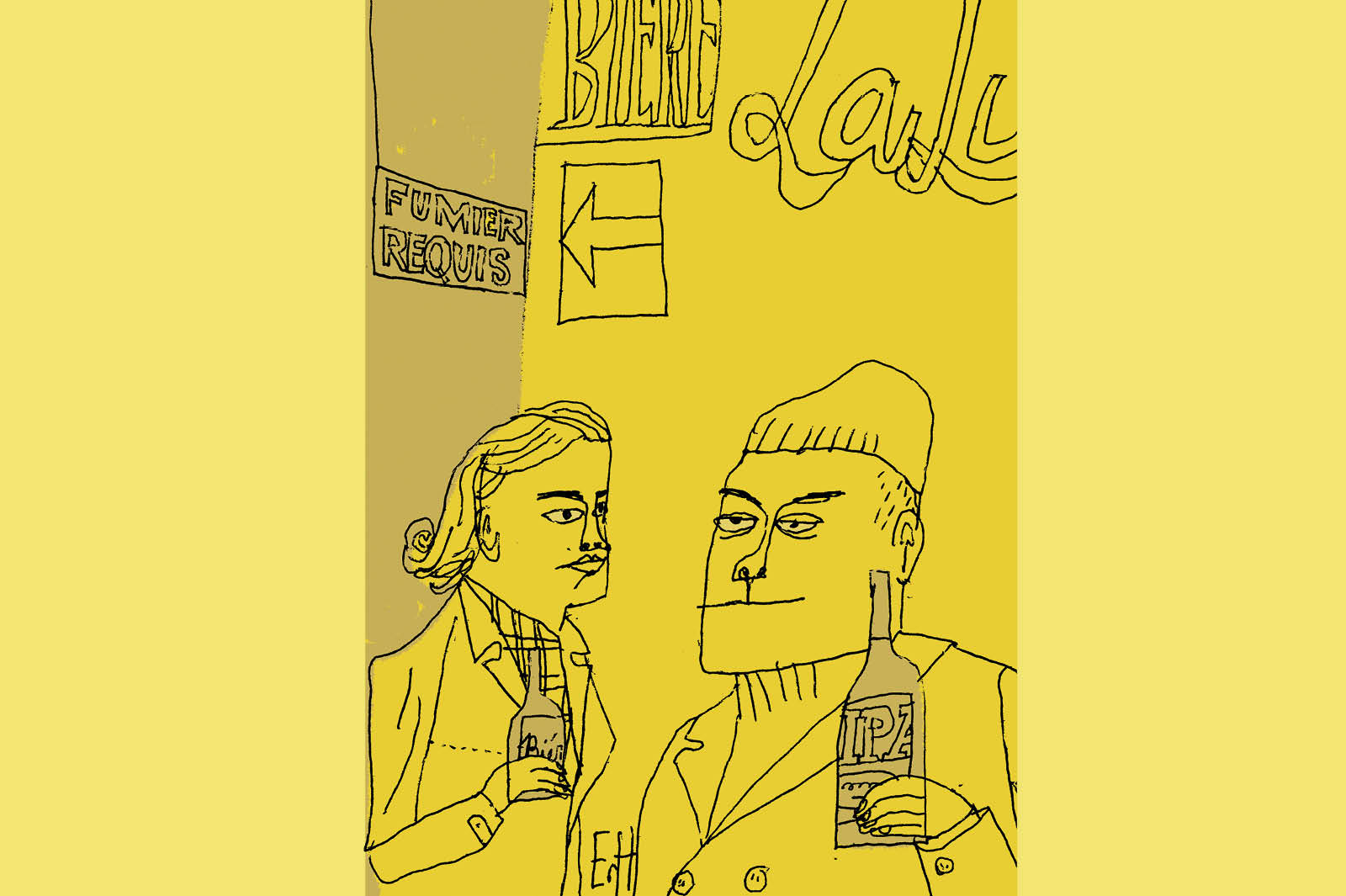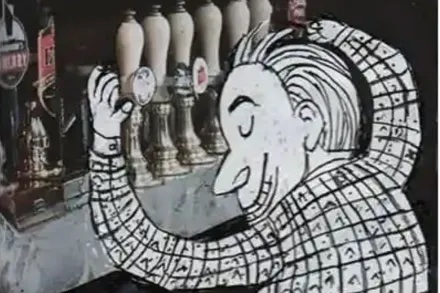Some of my readers may be unfamiliar with Athenaeus of Naucratis, a shadowy Egyptian-born Greek who floruit somewhere in the Roman Empire during the reigns of Marcus Aurelius, Commodus and Septimius Severus, i.e., around 200 AD. Athenaeus was a rhetorician, grammarian and epicure. But he is known to posterity primarily as the author of The Learned Banqueters (Δειπνοσοφισταὶ), a sprawling, miscellaneous work that touches on, well, just about everything: food, philosophy, fermentation, fabulation and many other subjects, not all of which begin with the phoneme “f.”
Henry James called the three-volume Victorian novel a “loose baggy monster.” None was so loose or so baggy as Athenaeus’ compendium. There is a bit of Petronius’s Satyricon (c. 65 AD) about the book, especially in its obsession with food and sex (see Book 13 for the latter). In its variousness, The Learned Banqueters in some ways resembles Robert Burton’s Anatomy of Melancholy (1621). But Burton’s conspectus, at some 1,030 pages, is a mere primer compared to the fifteen books (some parts in epitome) of The Learned Banqueters.
Athenaeus modeled his work roughly on Plato’s Symposium, recounting in dialogue form conversations at a series of dinner parties at the house of a rich Roman book collector and connoisseur called Larensius. There are some two dozen named characters — including some famous historical figures — but the main verbal action occurs between Athenaeus — or “Athenaeus” — and his friend Timocrates. There are no profound meditations on the nature of love, virtue, knowledge or politics, as there are in Plato. But there are tidbits galore, and plenty of gossip. Did you know that Aeschylus wrote his plays while drunk? That, anyway, is what Athenaeus says that Euripides said.
There is a lot of quotation, direct or paraphrased, in The Learned Banqueters. Indeed, that trove of quotations is what makes the book so important as a cultural artifact. S. Douglas Olson, who edited the 2006 Loeb edition of the work (in eight volumes), calculated that Athenaeus cites 1,000 classical authors and quotes some 10,000 lines of verse. In many instances, those quotations are the only surviving source for the works in question. In the judgment of one scholar, its status as a gigantic, if also haphazard, repository of literary bijoux makes The Learned Banqueters “in some respects… the most important work of later antiquity.”
It is also, if taken in bite-size portions, indisputably one of the most amusing. “All well and good,” you say, “but isn’t this a column about wine?” I am glad you asked. There is a lot of wine in The Learned Banqueters. Which is to say, there is a lot of talk about wine in its pages. (The only actual wines in my copy are a couple of stains in volume one, at the tops of pages 189 and 327.) Among other things, The Learned Banqueters corroborates the sometimes shaky faith in the universality of human nature. Some things are just instinctual to the species Homo sapiens sapiens. Talking about, comparing and praising one sort of wine at the expense of another is just part of who we are as a species.
So when we read in Athenaeus that “old wine not only tastes better but is better for one’s health,” we feel we are on well-trod ground. And why is old wine better for one’s health? “Because it is more effective at promoting the digestion of one’s food; since it has broken down more completely, it is more easily absorbed; it supplies the body with energy; it renders the blood redder and makes it more absorptive; and it produces undisturbed sleep.” Making allowances for the antique medical vocabulary, we might be reading a contemporary encomium.
Readers of Catullus, Horace and many other Roman authors know the high regard in which Falernian wine, a strong white wine made from the famous Aglianico grape and hailing from the slopes of Mount Falernus (now Monte Massico) in Campania, was held. There are no contemporary equivalents that I know of. Pliny the Elder says it was “the only wine that takes light when a flame is applied to it.” Athenaeus was adamant in his enthusiasm, especially in comparison with Phoenician wine. “If some empty-headed brainless bullshit artists [ἀλαζονοχαυνοφλύαροι] mockingly assert that Phoenician wine is best of all, I pay them no attention.”
A wise policy. I follow it myself.
So much for context. I will be back next month with some specific recommendations. Meanwhile, it saddens me to report that Athenaeus seems to have come to a sticky end. The locals got wind of his writing and considered it subversive. They kidnapped him and threatened to kill him if he didn’t stop. He said he would but, graphomaniac that he was, didn’t. A group of angry malcontents stormed his house and strangled him. Dinner was definitely over.
This article was originally published in The Spectator’s June 2022 World edition.

























